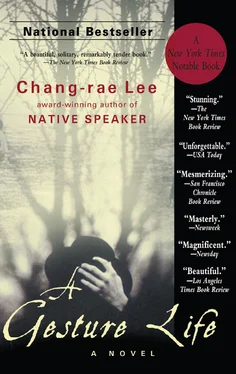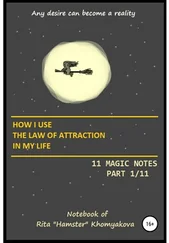My Sunny, I thought, would do much the same. Not be so thankful or beholden to me, necessarily, but at least she’d be somewhat appreciative of the providence of institutions that brought her from the squalor of the orphanage — the best of which can be only so happy — to an orderly, welcoming suburban home in America, with a hopeful father of like-enough race and sufficient means. But now, sitting with Veronica, I realize the obvious mistakes that were made in regard to Sunny. Firstly, I shouldn’t have made my desire for a child so paramount as to cloud my good judgment, which is what happened when I was interviewed by the woman at the agency. She had warned me on the telephone that it was exceedingly rare for a single man to be granted an adoption, that in fact there was no precedent for it and so really no reason for a meeting. I insisted, and when we met face-to-face she was able to understand the earnestness of my desire for a child, though of course earnestness should never be solely enough. I brought along a large donation to the agency, this beyond the regular expenses, as well as a like sum for the woman, which I explained as a most proper gift in my former homeland, and which would be followed by another. This wasn’t actually proper, however, but she stopped talking and discreetly slipped the rice paper — wrapped package into her desk drawer, and on my way out she said she would see what was possible for a man in my special situation.
My second error was insisting on a female infant or child, when I should have known that a girl would likely do best with a maternal presence. But I wanted a girl, a daughter — I was (as I think of it now) strangely unmovable on the issue — and in the end the agency woman called to say they had found one, without any further explanation. My desire for a girl was unknown to me right up to the moment the agency woman spoke of locating a boy for me, but I interrupted her immediately and explained how I’d always hoped for a daughter, the words suddenly streaming from my mouth as though I’d long practiced the speech. I found myself speaking of a completeness, the unitary bond of a daughter and father. Of harmony and balance. The woman seemed impressed, or pretended to be, and when she called several weeks later with news of a suitable orphan, a girl from the city of Pusan, in Korea, I was overcome with a feeling that I can only describe as relief. There were no Japanese children available, but it didn’t matter to me anymore. I thought only of the moment of her arrival, which I had hoped would serve to mark the recommencement of my days.
* * *
IT IS HALF PAST SIX, and Veronica’s shift is all but done. Too soon, I think, her mother will curl the blue-and-white police cruiser around the parking circle and let the siren whoop sharply just once, to let her know she’s there. I’m to be discharged by Dr. Weil in the morning, and as Veronica’s shift doesn’t start until mid-afternoon, I won’t see her again unless I make a special trip, which I will consider, for I know, too, that Mrs. Hickey’s son, Patrick, is in the children’s ICU. Mrs. Hickey called early this morning to the nurses’ station to check on my condition, and though I was fine to talk I asked Nurse Dolly to tell her I was still sleeping. We’d made tentative plans to meet here at the hospital, and of course my unexpected stay would seem good timing (of a sort) for a visit, but a part of me doesn’t want to talk to Mrs. Hickey just now, or even see her face.
Last night at three, while Nurse Dolly was napping, I unhooked myself from the monitors and rose from my bed. I crept past the nurses’ station to the elevator bank, and though I wasn’t intending it, when the doors opened I pressed the button for the sixth floor, to the unit where Patrick Hickey lay.
I remembered the room number from Mrs. Hickey, which was easy for me to note because it was also the name of an anti-bacterial treatment we often used during the war, a solution of Salvarsan that was known as “606,” the number of its compound denotation. It’s one of those queer numbers that can appear with inexplicable frequency in one’s life. In any case, the door to the room was ajar, and I slipped in without a sound, not having to trip the latch. I was breathing with some labor, though, from the exertion of walking quickly and perhaps the oddness of what I was doing, which in retrospect was completely silly. With flowers or a stuffed animal in hand, I could have asked one of the nurses if I could enter and look at him, and they would have simply waved me in. Instead I stole inside the half-lighted room, padding breathlessly in my slippers toward his bed. He was taking oxygen, which wasn’t what made him appear so beset and wan; it was that he was amazingly slight and small, as though he were four or five years old instead of eight. With his weakened heart, he’d never grown as he should have, his wrists too delicate, it seemed, even to lift the tiny hands. But it was the features of his face that I could not look away from, his brush of hair, his nose, his tender, scant mouth. The sheer lids of his eyes. He looked like his mother, if his mother were boyish and unformed. He lay with a sheet pulled up to his neck, and I had a strong impulse to draw it back so that I might see his chest, where they would open him if they could find a suitable heart.
Once, during the war, I witnessed our outpost’s doctor pull apart the ribs of a man in order to hand-massage his heart. It’s a strange technique to see, the procedure at once God-like and lowly animal. The patient was a Burmese man, a cobbler who was found stealing from the supply tent and who was condemned to death by beheading. But the doctor, a Captain Ono, asked the commanding officer if he would commute the sentence and give the man over to him, for purposes of instruction. So the morning of his execution, the cobbler was brought to the medical tent instead of the killing yard, where Captain Ono gathered us medics and interested others, including the commander, and put him into a half-sleep with a rag soaked in ether. The doctor, gloveless, maskless, as were the rest of us, quickly cut down his chest with a scalpel and then used the bone saw and the spreader and pushed aside the man’s lungs to reveal his slowly beating, slowly galloping heart. It was all most unreal. Captain Ono himself seemed nonplussed. He took a paddle connected to a modified field telephone with a crank, which he turned quickly several times, and then asked us to give room. He flipped on a switch and then touched the paddle to the heart. It leaped into a faster rhythm, and then it stopped. He stood there for what seemed too long a moment, and then with his hand roughly grabbed the cobbler’s heart and began squeezing. He did this rhythmically and with great purpose until it began beating again. It was nearly magical. He wished to show us a possible emergency maneuver in the field, in instances of the most grievous trauma. Though to me it seemed more academic than anything else. He repeated the exercise three or four times, which surprised him enough that he commented upon the vitality of the particular organ, until the last time, when his hand massage didn’t work. He touched the heart with the paddle but nothing happened, and he attempted another manipulation, making a final remark on the importance of consistent, vigorous action. Then the instruction was over. Captain Ono wiped his hands with the etherizing rag, and the cobbler, solemnly agape, was carted away.
I wondered if I could perform the same on Patrick, if something terrible were to happen and his monitors alarmed and no one else could come. If I held the knife in my hand, could I make the quick, deep cut on him, could I reach inside, handle the thing, sustain him for the necessary time? The medic aims to keep a wounded comrade within the realm of being saved by a learned professional, and in this respect I think I was mostly good enough. To cease a hemorrhaging, get a man to breathe again. Pump down on a stilled heart. It is the mode I’ve come to know, that I’m able to sort out and address the primary disaster, at least. But the ongoing trouble, the chronic, complicated difficulty of the kind Patrick Hickey’s parents have faced the last few years of his life is the one that shakes me from all my confidences. To be truthful, I am sure I’m not a creature who was made to endure. I’m not a long-chase antelope. I’m designed to withstand the hard, swift charges, or else am readily overcome. And so to have talked to Mrs. Hickey in the room with her dying son, and amid all their money troubles with my old store, seemed too much; I would never want to depress or disappoint her, in that I wasn’t helping to alleviate her burdens, and so what else should I do but avoid her for now, even as I desperately wished to lend her friendly support?
Читать дальше











![William Frith - John Leech, His Life and Work. Vol. 1 [of 2]](/books/747171/william-frith-john-leech-his-life-and-work-vol-thumb.webp)
![William Frith - John Leech, His Life and Work, Vol. 2 [of 2]](/books/748201/william-frith-john-leech-his-life-and-work-vol-thumb.webp)